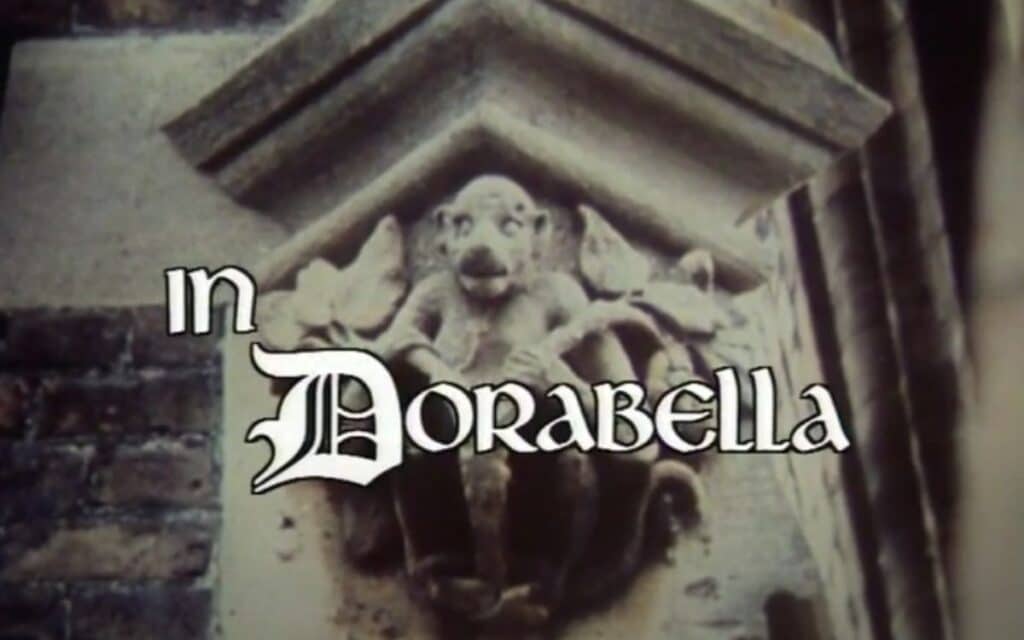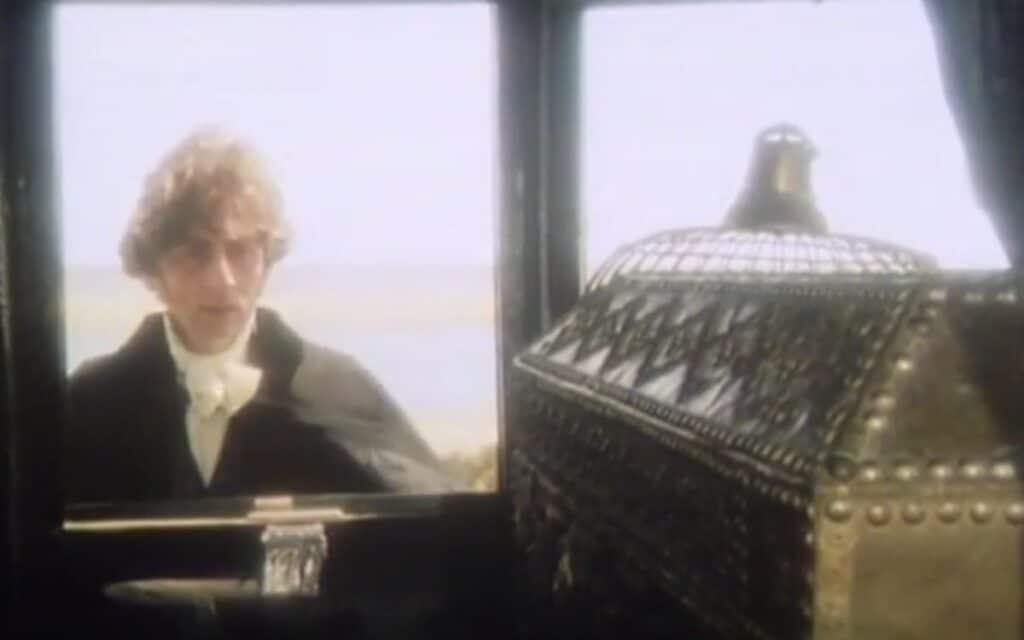Dorabella, a traditionally rooted vampire tale, ends the Supernatural series on a high note, writes RICHARD MARKWORTH

TITLE: Dorabella
DIRECTOR: Simon Langton
FIRST BROADCAST: 6 August 1977 BBC1
Review of Dorabella
Dorabella, the final episode in the Supernatural anthology ends the series on a definite high note. Having already tackled ghosts, werewolves, and doppelgangers this instalment concerns another iconic horror figure, the vampire.
The Club of the Damned convenes once again as Philip Hambleton (David Robb), a youthful-looking man despite his claim to have travelled extensively prior to the invention of the railway, relays his story of terror for their consideration.
Philip accompanies his rich young friend Walter von Lamont (Jeremy Clyde) on his coach travels across Europe where together the pair go in search of adventure as ”collectors of the unusual, the forbidden, the unique experience”.
While stopping off at a coaching inn one evening the duo witness the arrival of the beautiful, enigmatic Dorabella (Ania Marson) who’s luggage seems to consist only of a caged bird and a mysterious chest. Walter is immediately captivated and swiftly becomes deeply enamoured of the enchanting woman.
Dorabella instructs Walter to convey her carriage and luggage across the country to her family home where, once the long journey has been completed, they can be together. The smitten young man complies despite Philip’s forebodings.
As the two friends travel North, they stay at various inns enroute where they are later joined by Dorabella who appears at each location without the aid of any visible means of transport and never during the hours of daylight. Throughout the course of their journey, mysterious deaths occur in the vicinity of whichever hostelry they patronise.
As their strange odyssey continues, the obsessed Walter begins to significantly deteriorate, becoming a haunted stranger to Philip whose attempts to warn him over Dorabella’s malign influence fail to deter him from his path.
Finally, they arrive at Dorabella’s family castle where they are introduced to her imposing, and rather disturbing-looking, father (John Justin). It is here they learn the truth of Dorabella’s otherworldly heritage and her search for a suitable candidate to strengthen the family bloodline. Despite his all-consuming infatuation, not to mention his participation in a bizarre wedding ceremony, it seems Walter may not be Dorabella’s chosen one after all.

Dorabella is a traditionally rooted vampire tale containing many of the established tropes of the genre. Although the title character’s undead nature is patently obvious early on, with the fact she can control the weather and disappears during the day being rather glaring red flags, this does not detract from the story.
Rather, it helps to reinforce this fatalistic tale of self-destructive obsession by providing a reason for the men to find themselves unable to resist Dorabella’s powerful, unnatural allure and spiral uncontrollably toward their respective destinies.
Dorabella’s brand of vampirism is effectively presented as a corrupting disease which contributes to the horror of the piece and, with its ruinous effect on Walter, can be viewed equally as a metaphor for toxic relationships, helpless addiction, or sexually transmitted infection.
The entire cast is exemplary. Clyde performs superbly as Walter, ably portraying a previously vital and confident man whose health and personality disintegrate once in the thrall of a corrosive supernatural force while Marson in the titular role is suitably beguiling as the manipulative bloodsucker.
As with previous episodes, this entry is highly atmospheric, and David South’s dreamlike photography imparts a dark fairytale quality to proceedings which enhances the eeriness of the production.
There is also a pleasingly macabre sting in the tale as Philip provides a final revelation to the members of the Club of the Damned when they dare to question the veracity of his account.
Dorabella stands alongside Night of the Marionettes as arguably the best of the Supernatural series and, although unlikely to appeal to the Twilight generation, is highly recommended for fans of classical vampire fiction.
Tells us your thoughts of Dorabella, Supernatural 1977 episode 8, in the comments section below!
Read Richard Markworth’s reviews of Supernatural 1977 episodes on Spooky Isles.
Read our Supernatural 1977 Episode Guide with reviews of all the episodes!







